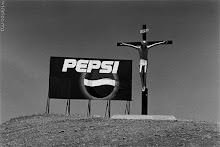Learnsings.
My dad holds a low opinion of my ability to wield tools and fix machinery. He came by his opinion quite appropriately, for as a child I would avoid work as much as was possible; on a farm, half the work is wielding wrenches. Of course, now I must get things done. And wrenches I do wield.
Mechanical ability is one part the logical ability to figure out how things come apart and go together in space, one part deciding on and finding the correctest tool to do it, and one tiny part the ability to use the tools. The coming apart and going back together part seems to me to be mostly experience. I usually stop one step short or go too far in my dismantling, both ending with frustration. The tool choosing part is also mostly experience, with a small bit of creativity. If you can imagine a specific tool, someone somewhere makes it. And if you don’t want to go to the trouble of finding it, it’s usually possible to create a crude facsimile from others tools in any well stocked shop. Tools are neat. And, most any monkey could use most of the tools we do.
So if you boil that all down, yeah, I’m of the opinion that mechanical ability is mostly knowledge and experience. Of which I have only so far a little of. But anyone could create their own, given the time, effort and necessity/want. It’s a great skill to have, and anyone could have it, really.
There are two skills I should have as a farmer. The ability to weld and the ability to use a cutting torch. I have neither. Yesterday my friend’s dad introduced me to MIG welding. MIG I like. Which is too bad, because all I have is a stick welding system.
Mechanical ability is one part the logical ability to figure out how things come apart and go together in space, one part deciding on and finding the correctest tool to do it, and one tiny part the ability to use the tools. The coming apart and going back together part seems to me to be mostly experience. I usually stop one step short or go too far in my dismantling, both ending with frustration. The tool choosing part is also mostly experience, with a small bit of creativity. If you can imagine a specific tool, someone somewhere makes it. And if you don’t want to go to the trouble of finding it, it’s usually possible to create a crude facsimile from others tools in any well stocked shop. Tools are neat. And, most any monkey could use most of the tools we do.
So if you boil that all down, yeah, I’m of the opinion that mechanical ability is mostly knowledge and experience. Of which I have only so far a little of. But anyone could create their own, given the time, effort and necessity/want. It’s a great skill to have, and anyone could have it, really.
There are two skills I should have as a farmer. The ability to weld and the ability to use a cutting torch. I have neither. Yesterday my friend’s dad introduced me to MIG welding. MIG I like. Which is too bad, because all I have is a stick welding system.

6 Comments:
I look at the ability to visualize the object of maintenance in a correct and working state to be the most useful. With a selection of tools, disassembly using the correct or almost-correct tool can mostly proceed. But to recognize which part is misadjusted, which is badly worn, and how the broken parts went together, that is the tough one. Partly remembering what the thing looked like last night, or last year, partly imagining how the thing should be moving or working, partly fitting puzzle parts together.
Especially with torching and welding, figuring what shapes to cut or strive for can be a challenge on a farm. Any construction worker has a blueprint. Farmers may be lucky to get a reprint of the original horse-drawn cultivator plan from Small Farmers Journal.
Recognizing what broke, and visualizing how it will look when 'fixed'. Those are the tough skills.
you're right, brad. i had a line in there that i took out about how it's all useless unless you can diagnose wtf is wrong in the first place.
How much does a MIG welding system cost?
you know you put a lot of numbers in places that make sense to you, simon.
steve - about $1K for a decent basic setup
Read Pirsig, that will have you mechanically and spiritually aligned for the rest of the season.
patriotdave - i made it only halfaways through zen the first (so far only) time i tried to read it. maybe if i had a motorcycle...
Post a Comment
<< Home